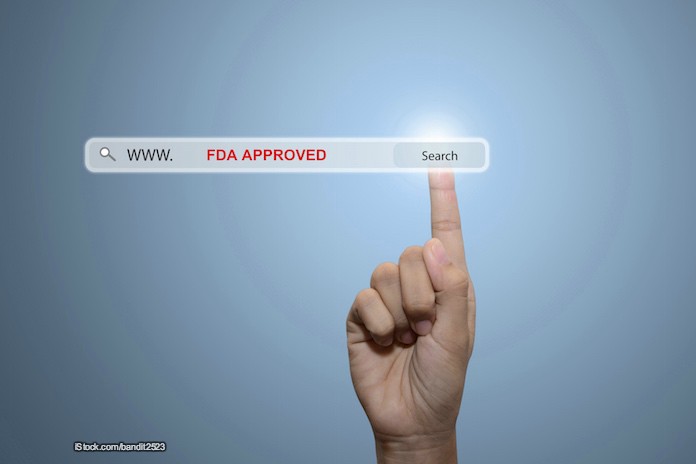When you see the words “FDA Approved” on a product, what does that mean? The FDA is a government agency that is responsible for protecting the public health. It regulates human drugs, biologics, animal drugs, medical devices, tobacco products, food, cosmetics, and electronic products that emit radiation.

Not all of those products are reviewed for safety and effectiveness by the FDA before thy are marketed. FDA enforcement efforts often focus on products that are already available to consumers. The FDA can act when safety issues and problems arise.
The FDA does not approve companies, health care facilities, labs, or manufacturers. Owners and operators of domestic or foreign food and drug companies must register their facilities with the FDA.
The FDA approves new drugs and biologics, but does not approve compounded drugs. New drugs and some biologics must be proven safe and effective “to the FDA’s satisfaction” before they can be marketed in interstate commerce. Compounded drugs, which are combined medications to meet the needs of individual patients, are not evaluated for safety, effectiveness, or quality.
FDA approves food additives and color additives. But companies that want to add new food additives must provide FAD with information demonstrating that the additives are safe. The FDA reviews the test results. Some food ingredients, such as those on the GRAS (generally recognized as safe) list don’t require premarket approval. Color additives used in food, dietary supplements, drugs, cosmetics, and some medical devices are subject to approval, and must be used only in approved uses and within certain restrictions.
The FDA approves animal drugs and food additives for use in animal food. The Preventive Controls for Animal Food rule, under the Food Safety Modernization Act (FSMA) requires food companies to prevent food from being contaminated and to use current good manufacturing practices.
FDA does not approve medical foods, which are intended for use under the supervision of a physician. Medical foods do not include meal replacements or diet shakes, or products for management of diseases such as diabetes. Medical food companies must register and comply with good manufacturing practices.
FDA does not approve infant formula, but the manufacturers of these products are subject to FDA’s regulatory oversight. Infant formulas must comply with federal nutrient requirements. And FDA inspectors conduct yearly inspections of all facilities that manufacture infant formulas.
The FDA doesn’t approve dietary supplements and they are not reviewed for safety and efficacy before they are marketed. But manufacturers of those that contain a “new” dietary ingredient, which has not been marked before October 15, 1994 must send a notification to the FDA. After the product is on the market, if consumers experience adverse effects, the FDA can evaluate the product’s safety.
The FDA does not approve the food label. FDA does require nutrition information labels on most foods, including dietary supplements. But claims must be truthful and not misleading.
The FDA does not approve structure-function claims on dietary supplements and foods. Companies that make these claims must submit a notification to the FDA. These claims must carry a disclaimer stating that the claim has not been reviewed by the FDA, and that the product is not “intended to diagnose, treat, cure, or prevent any disease.”





In other words seeing “FDA Approved” on the product is misrepresenting the product. FDA may have approved the actual drug, device, colors, or food additive but FDA cannot approve the production of the product or the firm on the day to day basis. I would think twice before purchasing any product that labels itself “FDA Approved”.